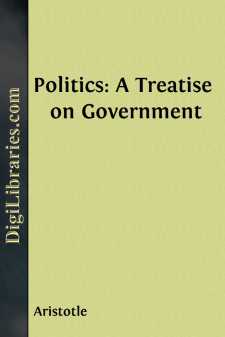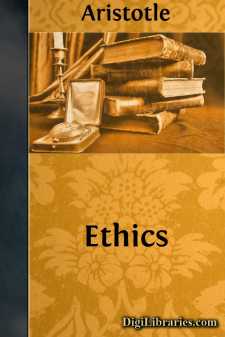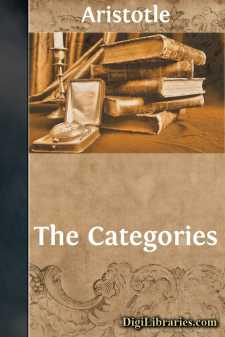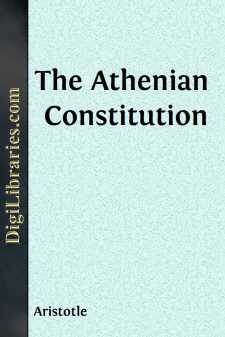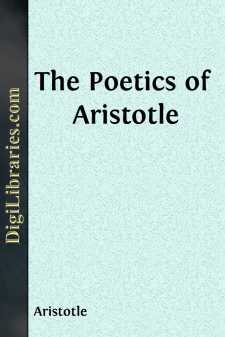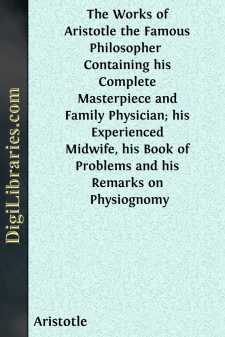Categories
- Antiques & Collectibles 13
- Architecture 36
- Art 48
- Bibles 22
- Biography & Autobiography 815
- Body, Mind & Spirit 144
- Business & Economics 28
- Children's Books 18
- Children's Fiction 14
- Computers 4
- Cooking 94
- Crafts & Hobbies 4
- Drama 346
- Education 58
- Family & Relationships 59
- Fiction 11835
- Games 19
- Gardening 17
- Health & Fitness 34
- History 1378
- House & Home 1
- Humor 147
- Juvenile Fiction 1873
- Juvenile Nonfiction 202
- Language Arts & Disciplines 89
- Law 16
- Literary Collections 686
- Literary Criticism 179
- Mathematics 13
- Medical 41
- Music 40
- Nature 180
- Non-Classifiable 1768
- Performing Arts 7
- Periodicals 1453
- Philosophy 65
- Photography 2
- Poetry 896
- Political Science 203
- Psychology 44
- Reference 154
- Religion 515
- Science 126
- Self-Help 85
- Social Science 83
- Sports & Recreation 34
- Study Aids 3
- Technology & Engineering 59
- Transportation 23
- Travel 463
- True Crime 29
Aristotle
Aristotle was an ancient Greek philosopher and polymath, a student of Plato and teacher of Alexander the Great. His writings cover diverse subjects including metaphysics, ethics, politics, logic, and natural sciences, laying foundational frameworks for Western philosophy and scientific thought. Aristotle's work, particularly in ethics with his concept of the "Golden Mean," and in logic with the development of syllogism, continues to influence contemporary philosophical and scientific discourse.
Author's Books:
Sort by:
by:
Aristotle
The Politics of Aristotle is the second part of a treatise of which the Ethics is the first part. It looks back to the Ethics as the Ethics looks forward to the Politics. For Aristotle did not separate, as we are inclined to do, the spheres of the statesman and the moralist. In the Ethics he has described the character necessary for the good life, but that life is for him essentially to be lived in...
more...
by:
Aristotle
INTRODUCTION The Ethics of Aristotle is one half of a single treatise of which his Politics is the other half. Both deal with one and the same subject. This subject is what Aristotle calls in one place the "philosophy of human affairs;" but more frequently Political or Social Science. In the two works taken together we have their author's whole theory of human conduct or practical...
more...
by:
Aristotle
Part 1 Things are said to be named 'equivocally' when, though they have a common name, the definition corresponding with the name differs for each. Thus, a real man and a figure in a picture can both lay claim to the name 'animal'; yet these are equivocally so named, for, though they have a common name, the definition corresponding with the name differs for each. For should any one...
more...
by:
Aristotle
Part 1 ...[They were tried] by a court empanelled from among the noble families, and sworn upon the sacrifices. The part of accuser was taken by Myron. They were found guilty of the sacrilege, and their bodies were cast out of their graves and their race banished for evermore. In view of this expiation, Epimenides the Cretan performed a purification of the city. After this event there was contention...
more...
by:
Aristotle
I propose to treat of Poetry in itself and of its various kinds, noting the essential quality of each; to inquire into the structure of the plot as requisite to a good poem; into the number and nature of the parts of which a poem is composed; and similarly into whatever else falls within the same inquiry. Following, then, the order of nature, let us begin with the principles which come first. Epic...
more...
by:
Aristotle
PART I—BOOK I THE MASTERPIECE On marriage and at what age young men and virgins are capable of it: and why so much desire it. Also, how long men and women are capable of it. There are very few, except some professional debauchees, who will not readily agree that "Marriage is honourable to all," being ordained by Heaven in Paradise; and without which no man or woman can be in a capacity,...
more...
by:
Aristotle
In the tenth book of the Republic, when Plato has completed his final burning denunciation of Poetry, the false Siren, the imitator of things which themselves are shadows, the ally of all that is low and weak in the soul against that which is high and strong, who makes us feed the things we ought to starve and serve the things we ought to rule, he ends with a touch of compunction: 'We will give...
more...


